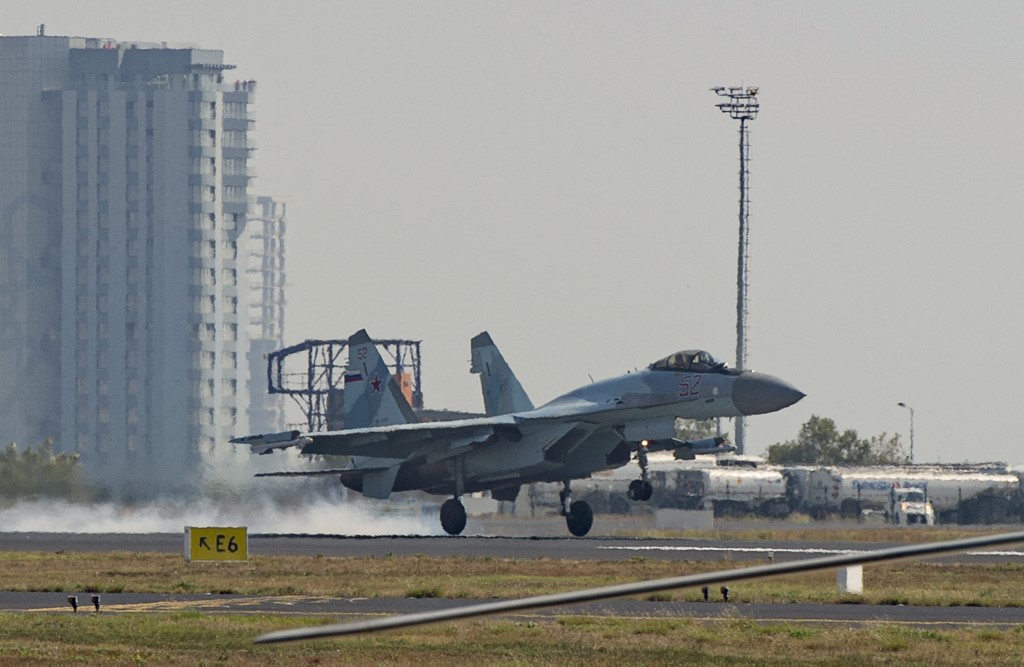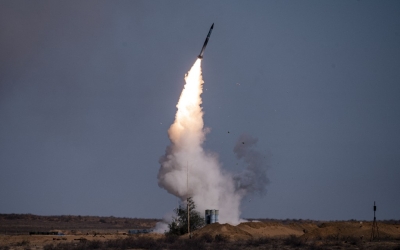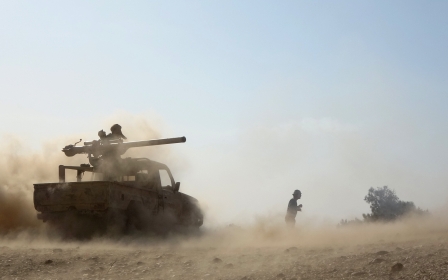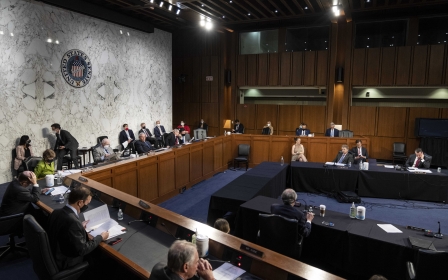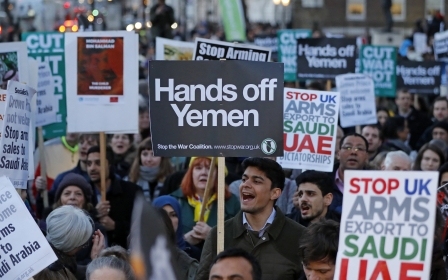Why Russia is increasing military ties with Saudi Arabia and Egypt
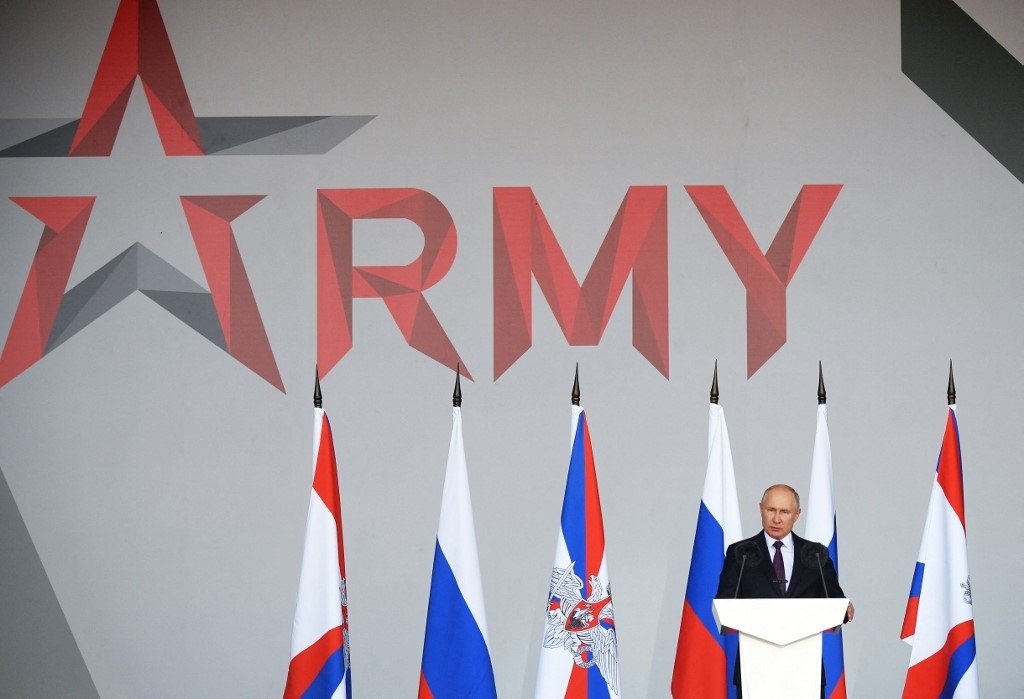
Last week, Russia hosted the seventh International Military-Technical Forum "Army 2021", an expo aimed at boosting Russian arms exports and enhancing military cooperation with partners around the world.
This year, it attracted around 1,500 local and foreign exhibitors, as well as over 800 attendees, representing 35 countries. Half of the national delegations were headed by defence ministers or their deputies. Middle Eastern states are regular guests at the forum, where they frequently sign military deals with Russia.
Moscow has neither the desire nor the capacity to replace Washington as the main ally of Cairo and Riyadh
Last week, Egypt and Saudi Arabia both signed military cooperation agreements with Russia. There is nothing new in Russia's desire to expand its military cooperation with Middle Eastern states, especially with Saudi Arabia, which has plenty of money to spend on arms, and Egypt, Russia’s long-time partner, with the two countries having a long and positive history of military-technical cooperation, dating back to Gamal Abdel Nasser's time.
Russia's military partnership with Saudi Arabia is altogether more recent, beginning around five years ago, when Moscow opened negotiations with Saudi Arabia. Russian president discussed military cooperation with both King Salman and Crown Prince Mohammed bin Salman on several occasions. According to the Russian defence ministry, over the last three years Moscow and Riyadh have been actively working on military-technical cooperation and there is an interest from the Saudi side in purchasing Russia’s most advanced weapons.
Despite the ongoing talks between Moscow and Riyadh, so far there have been no multi-billion deals on sales. In all probability, the agreement signed last week was merely a continuation of previous talks between the two parties, who continue to search for acceptable terms of cooperation in the military-technical sphere.
New MEE newsletter: Jerusalem Dispatch
Sign up to get the latest insights and analysis on Israel-Palestine, alongside Turkey Unpacked and other MEE newsletters
A limited cooperation
First, given Saudi Arabia's strategic ties to the United States, it is unlikely that Riyadh is going to cooperate militarily with Moscow to a degree comparable with the Americans any time soon.
Egypt and Saudi Arabia are long-time allies of the US and depend on American technological and financial assistance. Saudi Arabia buys 79 percent of its arms from the US, while Egypt receives $1.3bn annually from Washington, which is spent on purchasing US arms.
Although Egypt imported only 14 percent of its weapons from the US between 2015-2020 and 31 percent from Russia between 2009-2018, the $1.3bn of US assistance accounts for 34 percent of Egypt’s $3.8bn annual military budget. In addition, Egypt has diversified its military spending: over the past five years, 28 percent of Egyptian military imports arrived from France.
Second, Russia has been under pressure from US sanctions for a while, which hampers Moscow’s ability to sign new arms contracts and implement existing ones. In August 2017, then US President Donald Trump signed the Countering America's Adversaries Through Sanctions Act (Caatsa), which aimed to punish Moscow for what the US considered malign actions.
Under the legislation, countries trading with Russia’s defence and intelligence sectors faced secondary sanctions. Washington has already imposed secondary sanctions on Beijing over its purchase of Russian Su-35 fighter jets and S-400 missile systems, and is putting Turkey and Egypt under pressure for their military cooperation with Moscow.
Caatsa puts many other countries at risk of secondary sanctions, including long-time partners of Moscow such as India and Algeria, as well as those with which it has recently begun to develop military-technical ties such as Vietnam, Pakistan, Qatar, Indonesia, Kuwait, Saudi Arabia and the UAE.
But Moscow has neither the desire nor the capacity to replace Washington as the main ally of Cairo and Riyadh. It will try to exploit the situation in order to increase its arms deals in the region, which will give it more hard currency inflow. But this will not lead to the strategic reorientation of Saudi Arabia and Egypt from the US to Russia.
So what is driving Russia's sales push?
Prospective arms markets
Being the second-largest arms producer and exporter in the world after the US, Russia has a vested interest in increasing its market share. According to the Stockholm International Peace Research Institute (Sipri) annual report, since 2016 Saudi Arabia and Egypt have been among the top three arms importers in the world, with 11 percent and 5.8 percent of global arms imports respectively.
The Middle East is the fastest-growing arms market in the world, and the most attractive and lucrative to arms manufacturers such as Russia.
The countries of the Middle East imported 33 percent of all arms sold worldwide between 2016 and 2020, with Egypt and Saudi Arabia being responsible for about half of this share. No wonder competition among the major arms manufacturing countries is so fierce.
In the same period, Russia increased its arms sales to 13 percent of the region’s imports. Moscow clearly wants to continue this trend in increased sales, which would explain its attempts to advance cooperation with the Egyptians and Saudis.
A balancing act
Over the last decade, events in the region and in the US have created conditions in which Moscow has become a more attractive partner. Middle Eastern states have started to avoid putting all their eggs in the one US basket. In this context, Russia is helping to counter-balance many Middle Eastern states' formerly exclusive ties with America. Moscow has become a convenient bargaining chip for the regional countries in their talks with the US.
Changing attitudes in the region towards the global powers started shifting with the Arab Spring uprisings from 2010 onwards, when countries such as Egypt and Saudi Arabia began to treat the US with more caution. Back then, Washington failed to support its long-time allies Egyptian President Hosni Mubarak and Tunisian leader Zine el Abidine Ben Ali. In fact, it betrayed them.
The political elites of Egypt, Tunisia and regional US allies - Saudi Arabia, the UAE, Qatar, etc - started to doubt US commitment to their security
As a result, the political elites of these countries and those of other regional US allies - Saudi Arabia, the UAE, Qatar, etc - started to doubt US commitment to their security.
Then, in 2015, the Iran nuclear deal was struck. US President Barack Obama’s policy of engagement with Iran added even more suspicion on the side of the Saudis and Emiratis. Additionally, in September 2015 Russia deployed its military to Syria. Its involvement into the Syrian conflict change the tide of war and forced regional actors, that sought to overthrow the government of Syrian President Bashar al-Assad, to adjust their policies taking into account Moscow’s new role.
Finally, America’s shale oil revolution in the early 2010s led to a sharp increase in its domestic oil production. Between 2008 and 2019, US oil output rose by 140 percent, from 5,000 barrels per day (BPD) to 12,000 BPD, while oil imports fell by 24 percent, from 13,000 BPD to 7,800 BPD. Oil imports from the Gulf region dropped threefold during this period, clearly reducing its strategic importance to Washington.
This change in US oil imports and the sharp drop of oil prices in 2014 brought Moscow and Riyadh closer together, and led to the emergence of Opec Plus to coordinate the two nations’ oil production and export. It also contributed to the diversification of partnerships of regional countries that for many decades had focused exclusively on the US.
But military agreements between Russia and Egypt and Saudi Arabia should not be seen as a big shift in political allegiances.
Russian-Egyptian military-technical cooperation is a lot more advanced and involved than that between Russia and Saudi Arabia, as it goes beyond arms sales and includes anti-terror cooperation and annual joint military drills.
While the Moscow-Riyadh partnership is devleoping slowly, there seems to be little optimism about its possible success as there are no fundamental factors that can push it to the next level making Russia just one among many of Saudi Arabia's key partners.
The views expressed in this article belong to the author and do not necessarily reflect the editorial policy of Middle East Eye.
This article is available in French on Middle East Eye French edition.
Middle East Eye delivers independent and unrivalled coverage and analysis of the Middle East, North Africa and beyond. To learn more about republishing this content and the associated fees, please fill out this form. More about MEE can be found here.



